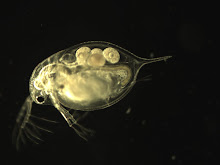On Sunday I heard a scientist on the Ted Radio Hour promoting "de-extinction," the notion of using DNA from extinct species to bring that species back from extinction. The scientist, Stewart Brand, is spearheading a project to resurrect select species, such as the passenger pigeon, and return them to the wild, moving de-extinction from the realm of theory and sci-fi/fantasy (remember Jurassic Park?) to reality.
On the face of it, this all sounds well and good. Biodiversity loss is arguably the second most troubling environmental problem, after climate change, and resurrecting species that we assumed were gone for good seems like an exciting, promising solution. But I wanted to blog about this because I thought Brand was briskly dismissive of the "other side" (and that Guy Raz and the Ted Radio Hour producers did little to draw attention to the fact that there IS indeed another side.) The case against de-extinction was eloquently made by Stuart Pimm, a Duke scientist and renowned expert in conservation biology, in a National Geographic opinion article last year. One of Pimm's arguments, in a nutshell, is that reviving species sends the wrong message: extinction is NOT forever; instead, it's a problem we can fix through innovation! How much of the public is aware of the magnitude of the current extinction crisis? (side note: an educated, intelligent person - who I happen to be married to! - once asked me why people were so concerned about extinction given that it and speciation are natural processes). Awareness may be growing since publication of Elizabeth Kolbert's book on the issue, but I sense that many people underestimate the scale of biodiversity loss and are receptive to the positive, optimistic message that this is a fixable problem. But the biodiversity crisis is not something that can be mitigated in any meaningful way by de-extinction. Conservation and restoration of declining species' habitats is the only way to make any progress in slowing - and hopefully some day halting - species loss. Brand shares Pimm's concern for biodiversity loss, but he did not touch on this issue at all, at least in the snippets of his talk on the Ted Radio Hour. It looks like there was actually a day-long Ted conference on de-extinction - I should check out the full program to see if they adequately address Pimm and other's sound concerns regarding species revival.
Wednesday, July 16, 2014
Subscribe to:
Post Comments (Atom)

No comments:
Post a Comment